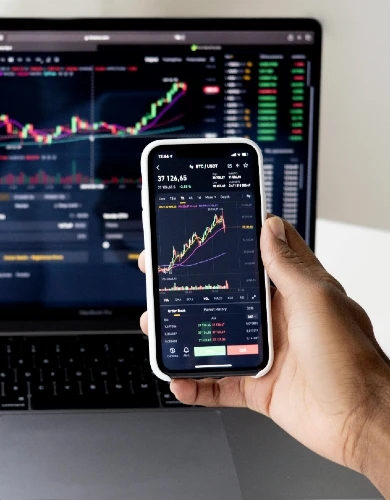Can my business sell REGO certificates?
Prices for REGOs have increased over 100x over the past three years, making claiming and selling REGOs a worthwhile exercise for even small-scale generators of renewable power.
This guide explains how businesses can generate and sell REGO certificates.
Here’s what we cover:
- Requirements for generating REGOs
- How to claim REGOs
- The REGO selling process
- How much are REGO certificates?
- Managing REGO certificates
Requirements for generating REGOs
Any owner of a renewable electricity generator can apply to receive REGOs, as long as you can measure the electricity it generates using a business electricity meter.
There are no minimum requirements for the amount of electricity generated, nor are there restrictions on how that electricity is used.
The electricity generation must occur within Britain or Northern Ireland and originate from one of the following sources:
- Wind farms
- Solar
- Aerothermal
- Geothermal
- Hydrothermal and ocean energy
- Hydroelectric power
- Biomass
- Landfill gas
- Sewage treatment plant gas
- Biogases (including the incineration of domestic and commercial waste)
Source: Ofgem – Guidance for generators
How to claim REGOs
Here is a step-by-step process to start claiming REGOs. This guide assumes that your business already has a renewable energy source meeting the REGO requirements.
Step 1. Register with Ofgem’s Renewables and CHP register
Create an account on the Renewables and CHP Register by providing information about your business.
This registration form requires basic information about your business, including:
- Company name
- Registration number
- Registered address
- Contact details
Step 2. Accreditation
Ofgem has an accreditation process to ensure that all REGOs are generated using renewable energy sources.
The accreditation process typically requires the following information:
- The installation’s name, location, type, and capacity.
- Details of Microgeneration Certification, including an upload of the certification documents.
- Make and model information of the generating equipment.
- Make, model, and serial number of your electricity meter.
- A schematic diagram of your generation equipment.
- Details of any investment support schemes used.
- The date when the installation became operational.
Step 3. Ofgem review
A team at Ofgem will review your application, including verification of your system’s compliance and eligibility.
If additional information is required, Ofgem will request it through the online portal.
The REGO review process typically takes a few weeks to complete. Upon acceptance, Ofgem will provide you with a REGO accreditation ID.
The REGO accreditation ID allows your organisation to receive, transfer, and manage REGOs on Ofgem’s online portal.
Step 4. Claim REGOs
Once you have received an accreditation ID from the REGO system, you can start claiming your certificates.
The Renewables and CHP Register allows you to submit meter reading data monthly or quarterly.
After you have submitted your data, Ofgem will issue a REGO certificate for each MWh of renewable electricity you have generated.
These certificates will remain in your account until they are transferred (sold), retired (used), or expire.
💡Note: REGO certificates automatically expire after 16 months, so it is important to claim and sell generated certificates regularly.
The REGO selling process
Once you have successfully generated REGOs in your account on the Renewables and CHP Register, you can sell your REGOs.
There are several options available to small businesses for selling their REGOs, which we explain in this section.
In each case, the ultimate buyer of the REGO certificates will provide you with their unique ID, which you can use to transfer your REGOs on the Renewables and CHP Register.
Direct sale to a supplier
Green business energy tariffs are increasing in popularity, creating significant demand from business energy suppliers that need to certify their green tariffs.
Unfortunately, most large business energy suppliers do not actively purchase REGO certificates from small-scale generators.
One notable exception is Good Energy, which actively purchases REGO certificates (as well as exported power) from small-scale generators. For more information, visit the REGO accreditation page on the Good Energy website.
According to Trustpilot ratings, Good Energy is one of the best business energy suppliers. Find out more in our full guide to Good Energy for Business.
REGO intermediaries
Alternatively, your business can work with an intermediary to arrange the sale of your REGOs.
Organisations like Renewables Exchange provide a platform for selling REGOs to match buyers with sellers.
How much are REGO certificates?
Since March 2023, the price of REGO certificates has varied between £10/MWh and £25/MWh (equivalent to 1 to 2.5p/kWh).
It is important to note that this market price is typically achieved by large-scale generators, such as UK wind farms, which generate vast quantities of power and can negotiate better prices from suppliers.
Small-scale generators may find it challenging to achieve these prices.
Managing REGO certificates
The Renewables and CHP Register is the primary tool Ofgem uses to manage the REGO scheme.
The register records the origination and ownership of individual REGOs and facilitates the following actions:
- Issuance: A new certificate is created by Ofgem for each 1 MWh of renewable electricity generated.
- Transfer: A REGO is transferred between account holders when it is sold from one party to another.
- Retirement: A licensed energy supplier uses a REGO to certify their Fuel Mix Disclosure or green tariff obligations.
- Cancellation: If not retired within the 16-month shelf life, Ofgem will automatically cancel the certificate.
Can you claim REGOs with a Smart Export Guarantee (SEG) tariff?
Smart Export Guarantee (SEG) tariffs allow businesses to export excess electricity to the local distribution network operator, receiving an agreed fee from an energy supplier.
The REGO and SEG schemes are compatible, enabling a business to:
- Generate and sell REGO certificates for all renewable energy generated.
- Use renewable energy at your business where it is required.
- Export excess electricity using your business electricity connection.
Claiming REGOs when using PPAs
A Power Purchase Agreement (PPA) is an agreement between an electricity generator and a buyer.
The treatment of REGOs in a PPA depends on the structure of the contract, typically falling into two scenarios:
- Bundled: The PPA includes the purchase of REGOs and electricity together at an agreed price.
- Unbundled: The PPA only covers the sale of electricity, allowing the generator to sell the generated REGOs separately.
In either scenario, it is necessary to claim the REGOs and transfer them using the online Renewables and CHP Register.

